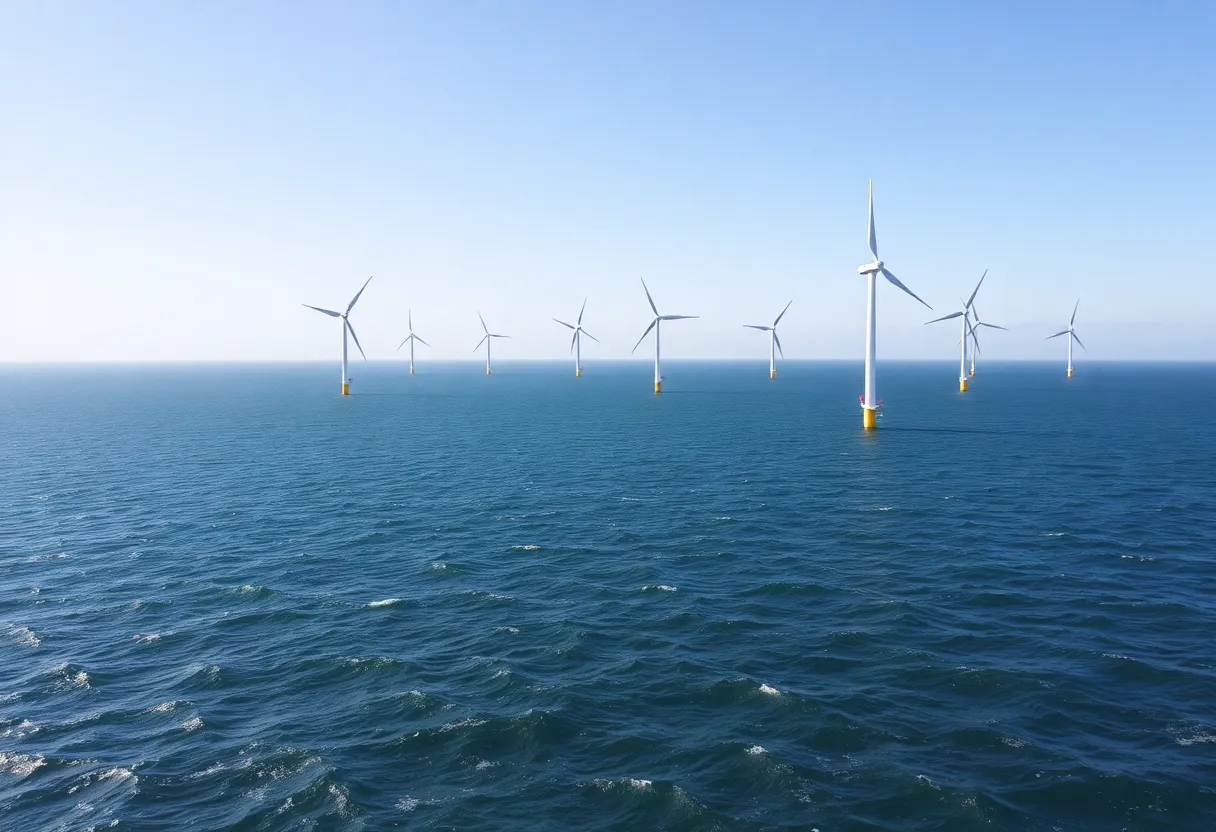News Summary
The U.S. Department of Transportation has canceled $679 million in federal funding for twelve offshore wind projects, greatly affecting Massachusetts’ Salem Wind Port Project. Governor Maura Healey criticized the decision as a detrimental blow to local workers, with 800 unionized workers facing uncertainty. The cuts also impact initiatives in Connecticut and Rhode Island, jeopardizing thousands of jobs and clean energy goals. Local officials are exploring legal options to overturn the cuts and continue vital projects.
Massachusetts
The U.S. Department of Transportation has announced the cancellation of $679 million in federal funding for twelve offshore wind projects across the country, significantly impacting several initiatives, including the Salem Wind Port Project in Massachusetts, which will lose nearly $34 million.
This funding cut forms part of the broader strategy by the Trump administration to halt the development of renewable energy, which commenced on the president’s inauguration day with a freeze on new offshore wind leases. The impacts of these decisions are significant, stalling progress on various key projects aimed at bolstering the country’s clean energy supply and job market.
Earlier this week, President Trump also halted work on the Revolution Wind offshore farm in Rhode Island—a nearly completed $4 billion project—indicating a continued stance against renewable energy investments. U.S. Transportation Secretary Sean P. Duffy labeled the offshore wind projects as “wasteful,” asserting that they divert funding away from revitalizing America’s maritime industry.
Impact on Local Workforce and Projects
The Salem Offshore Wind Terminal is a collaborative effort involving the City of Salem, the Massachusetts Clean Energy Center, and Crowley Wind Services. This initiative aims to support the offshore wind industry by staging and partially assembling turbine components. However, local officials have condemned the funding cut as a detrimental blow to the project and the community of Salem.
Massachusetts Governor Maura Healey criticized the decision, labeling it a “slap in the face” to the 800 unionized workers involved in the Salem project, many of whom now face uncertainty regarding their employment ahead of Labor Day. Healey has emphasized that the project was crucial for increasing energy supply and providing stability for numerous workers and their families.
Following the funding cancellation, Salem officials have expressed frustration that the decision was made without prior consultation with the city or project developers. As a result, they are exploring “all options and legal avenues” to reverse the termination of funds and continue with the project.
Broader Implications and Local Responses
The ramifications of the funding cuts extend beyond Massachusetts. The Bridgeport Port Authority Operations and Maintenance Wind Port project in Connecticut also lost $10 million in federal funds, while Rhode Island’s Port of Davisville lost $11 million. These cuts threaten pending job creation and economic growth within the offshore wind sector, which has been projected to invest $65 billion by 2030, with the potential to support 56,000 jobs.
According to the American Clean Power Association, approximately 73,000 megawatts of offshore wind capacity are currently under development, enough to provide power to over 30 million homes. Despite these promising figures, the abrupt funding cuts risk stalling progress and harming local economies reliant on these jobs and investments.
Critics of the federal decision, including local Massachusetts Senator Ed Markey, have labeled the funding cuts “unlawful and senseless,” suggesting they threaten thousands of jobs nationwide while also increasing energy costs for families. A spokesperson from offshore wind advocacy group Oceanic Network indicated that the administration’s decision compromises national security and undermines efforts to modernize maritime infrastructure while destroying potential job opportunities within the industry.
Conclusion
The cancellation of federal funding for offshore wind projects marks a pivotal moment for the renewable energy sector in the United States, particularly affecting Massachusetts and its workforce. As local officials and leaders rally efforts to seek remedies for this unexpected setback, the long-term implications for job security and clean energy infrastructure remain uncertain.
Deeper Dive: News & Info About This Topic
- MassLive: Healey Slams Trump for Canceling Salem Wind Project
- Wikipedia: Offshore Wind Power in the United States
- GoLocalProv: Trump Administration Hits RI’s Offshore Wind Industry Again
- Encyclopedia Britannica: Renewable Energy
- NBC Boston: Massachusetts-Rhode Island Port Funding Cuts
- Google News: Trump Offshore Wind Funding

Author: STAFF HERE PROVIDENCE WRITER
The PROVIDENCE STAFF WRITER represents the experienced team at HEREProvidence.com, your go-to source for actionable local news and information in Providence, Providence County, and beyond. Specializing in "news you can use," we cover essential topics like product reviews for personal and business needs, local business directories, politics, real estate trends, neighborhood insights, and state news affecting the area—with deep expertise drawn from years of dedicated reporting and strong community input, including local press releases and business updates. We deliver top reporting on high-value events such as WaterFire, Rhode Island International Film Festival, and Rhode Island Comic Con. Our coverage extends to key organizations like the Greater Providence Chamber of Commerce and Providence Warwick Convention & Visitors Bureau, plus leading businesses in finance and manufacturing that power the local economy such as Citizens Financial Group and Textron. As part of the broader HERE network, we provide comprehensive, credible insights into Rhode Island's dynamic landscape.





